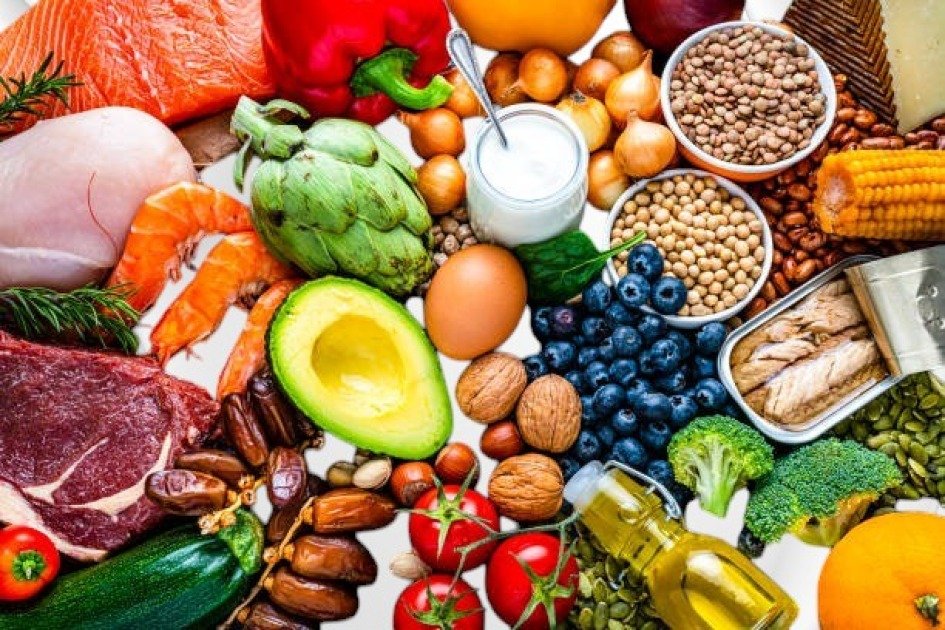Intermittent fasting is a popular dietary method for weight loss, metabolic health, and mental clarity. However, its benefits depend on the nutritional quality of the food consumed during eating windows, and strategic food choices can either enhance or hinder progress.
Dr. Peter Attia, a longevity expert, emphasizes that intermittent fasting is a tool, not a magic bullet. Success depends on the foods consumed during feeding windows, emphasizing the importance of nutrient-dense foods.
Understanding what to eat during an intermittent fasting (IF) journey is crucial. Consuming foods rich in fiber, healthy fats, lean protein, and essential micronutrients can stabilize blood sugar levels, reduce inflammation, promote satiety, and support hormonal balance.
Nutrient-rich foods can enhance fasting efforts, but poor choices like ultra-processed snacks and sugary beverages can hinder these benefits, leading to energy crashes and weight plateaus.
In summary, this guide outlines the top ten foods that complement an intermittent fasting lifestyle and enhance its effectiveness. It provides actionable insights and expert advice, while also addressing potential concerns. The guide also highlights blue sections for products and resources to simplify your journey.
Top 14 Supercharge Foods to Boost Your Fasting Benefits!
Intermittent Fasting involves consuming nutrient-dense foods to achieve fat loss, metabolic health, and sustained energy, enhancing mental clarity and optimizing digestion.
Different foods have different effects on metabolism, gut health, and hunger management, with some potentially hindering fasting goals and others promoting overall health.
This guide introduces fourteen proven foods that enhance fasting results, stabilize blood sugar, and promote longevity, aiming to transform your fasting experience.
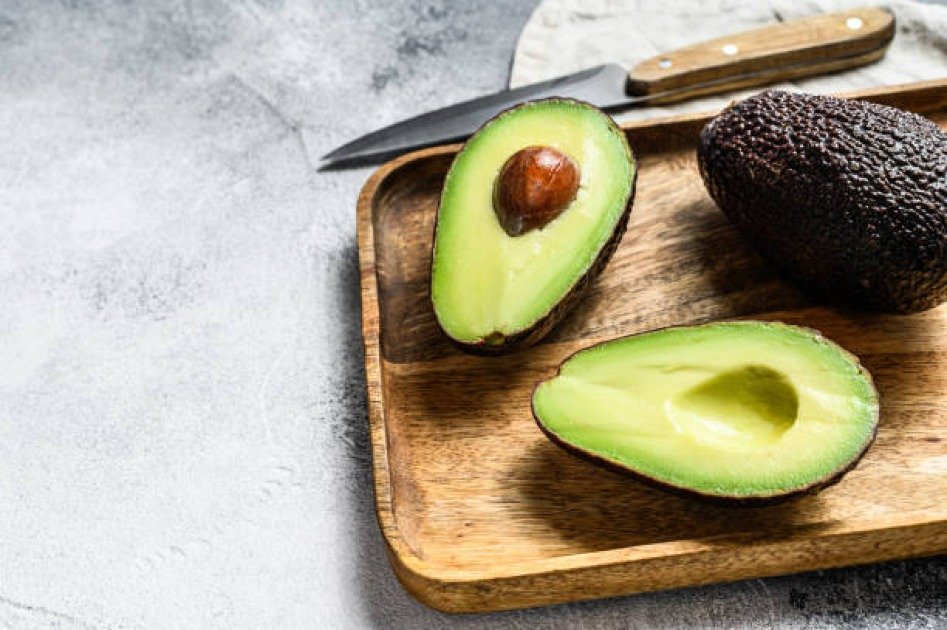
Avocados: Nature’s Creamy Superfood
Avocados are a nutritious powerhouse, especially beneficial for intermittent fasting. Their rich fats, fiber, and essential nutrients help maintain energy levels and promote satiety while eating windows. This in-depth review explores how avocados can enhance fasting regimens.
The Nutritional Profile of Avocados
Organic Hass Avocado Packs for Meal Prep are a heart-healthy, potassium-rich, and fiber-rich option, providing ten grams of fiber per cup, supporting digestion and gut health, especially during fasting.
Avocados provide a balanced blend of nutrients and fats, promoting sustained energy and reducing post-fast cravings. The Avocado Slicer and Saver Set is a great companion for intermittent fasting in prepping.
Avocados and Satiety
Intermittent fasting can be challenging due to hunger management. Portion-Controlled Avocado Mash Cups, made with avocados’ high fat and fiber content, help control calorie intake without compromising nutrient quality.
A Journal of Nutrition study found that avocado-based meals resulted in greater satiety due to their unique composition, slowing digestion, extending satisfaction, and reducing overeating.
Versatility in Meal Preparation
Avocados are versatile and suitable for diverse meal plans, making them ideal for avocado-based seasoning blends and all-natural salad dressing kits with avocado oil.
Avocado Uses in:
- Breakfast: Pair with eggs for nutrient-rich start.
- Lunch: Enhance leafy green salad with diced avocado.
- Dinner: Use mashed avocado as base for grain bowls or grilled salmon topping.
Avocado is a versatile ingredient that pairs well with both savory and sweet dishes, providing endless possibilities for creative meal preparation.
Avocado Oil: A Healthier Cooking Option
Avocado oil, particularly Cold-Pressed Avocado Oil, is a versatile cooking ingredient with a high smoke point, making it suitable for roasting, sautéing, and frying. Its mild flavor complements various dishes and offers similar health benefits as whole avocados, including antioxidant properties and monounsaturated fats.
Avocado oil is a healthier alternative to traditional cooking oils, particularly beneficial for those aiming for heart health and anti-inflammatory diets.
Avocados and Electrolyte Balance
Avocados are a major source of potassium, essential for electrolyte replenishment during intermittent fasting, promoting hydration and muscle function, reducing cramps and fatigue.
Avocados are a nutritious addition to fasting regimens, providing potassium, a crucial nutrient that maintains electrolyte balance, especially during extended fasts.

Eggs: A Versatile Protein Powerhouse
Eggs are a nutrient-dense food with high-quality protein, essential vitamins, and healthy fats, making them an excellent choice for intermittent fasting. They provide sustained energy, support muscle repair, and contribute to overall health, making them a valuable addition to your diet.
The Perfect Nutritional Package
Eggs are a rich source of essential nutrients, with each large egg containing six grams of protein and essential micronutrients. Organic, Free-Range Egg Subscription Services offer chicken raised on organic food for optimal benefits.
Eggs are an efficient protein source with amino acids that promote muscle recovery and satiety, making them ideal for breaking fast. Egg Cookers for Quick and Easy Meal Prep is an excellent option for preparing eggs.
The Role of Eggs in Sustaining Satiety
Eggs’ high protein content reduces hunger, keeping you fuller for extended periods, especially during intermittent fasting. Portable hard-boiled egg containers are ideal for on-the-go snacking.
High-protein meals, including eggs, can help reduce calorie consumption in subsequent meals, curb appetite, and maintain caloric goals during fasting regimens.
Versatility in Meal Preparation
Eggs are versatile, offering endless meal preparation possibilities with Egg Slicers and Peelers. They can be scrambled, poached, boiled, or baked, and can be customized to fit any palate or dietary preference.
Eggs Uses in:
- Breakfast: Pair scrambled eggs with avocado for a nutrient-packed start to your eating window.
- Lunch: Add a boiled egg to a salad with leafy greens and olive oil for a balanced midday meal.
- Dinner: Create an omelet filled with vegetables and a sprinkle of cheese for a satisfying evening.
Enhance the flavor of your egg-based dishes by incorporating herbs, spices, and complementary ingredients to maintain their health.
Eggs and Muscle Recovery
Eggs are a great post-workout food for those incorporating exercise into their intermittent fasting routine, as they contain leucine, a crucial amino acid for muscle protein synthesis.
Eggs are a nutritious protein source that aids in muscle repair and recovery post-workout, and when combined with carbohydrates like whole-grain toast or sweet potatoes, it further enhances recovery.
Innovative Egg-Based Snacks
For those needing quick, nutrient-dense snacks, eggs provide countless options:
- Deviled Eggs: Opt for a healthier version using Greek yogurt instead of mayonnaise.
- Egg Muffins: Bake eggs with chopped vegetables in Egg Muffin Baking Trays for a portable, protein-rich snack.
- Egg Wraps: Use thin egg omelets as low carb wraps for fillings like grilled chicken or vegetables.
Pre-make egg snacks are a convenient and nutrient-packed option to keep you fueled on busy days.

Leafy Greens: Nutrient-Dense Powerhouses
Leafy greens are a nutrient-rich food group, ideal for intermittent fasting enthusiasts due to their low-calorie content and high content of vitamins, minerals, and antioxidants, ensuring essential nutrients without disrupting caloric restrictions.
Leafy greens, including spinach, kale, and Swiss chard, are rich in essential vitamins, aiding detoxification, balancing blood sugar, and enhancing metabolic health.
Greens are rich in essential minerals like magnesium, calcium, and potassium, which are crucial for muscle function and maintaining electrolyte balance, especially during fasting periods.
High Antioxidant Content
Leafy greens’ antioxidants, like lutein and zeaxanthin, protect cells from oxidative stress, a risk factor for aging and chronic diseases, and enhance body defenses during eating windows.
Support Gut Health
Leafy greens’ dietary fiber aids gut health by promoting beneficial bacteria, enhancing immune function and reducing inflammation. This is especially crucial during intermittent fasting, as a healthy gut improves nutrient absorption and reduces bloating.
Satiety Without Excess Calories
Leafy greens, rich in water, provide a feeling of fullness without adding significant calories, making them beneficial for intermittent fasting practitioners to manage hunger while eating windows.
Practical Applications for Leafy Greens
- Salads as a Staple: Create vibrant salads using a mix of arugula, romaine, and spinach. Enhance them with protein sources like grilled chicken or tofu.
- Smoothies: Blend kale, spinach, or Organic Greens Powder Supplement into smoothies with fruits like berries for an antioxidant-rich drink.
- Soups and Stews: Swiss chard or collard greens can be added to broths and soups to provide a nutrient-dense addition.

Bone Broth: The Hydrating Healer
Bone broth is a nutrient-dense drink that provides hydration, essential minerals, and collagen for support during intermittent fasting. It is an ancient remedy with modern acclaim for its versatility and ability to replenish body needs during fasting. It is essential for intermittent fasting routines.
Hydration with Electrolytes: Replenishing During Fasting
Bone Broth Protein Powder is a great option for intermittent fasting, providing hydration and essential minerals like sodium, potassium, and magnesium. This broth is essential for fluid balance, muscle function, and overall cellular health, especially during fasting. Drinking warm bone broth during fasting hours can help maintain hydration and prevent hunger pangs.
Collagen and Amino Acids: Supporting Joint and Skin Health
Bone broth is a rich source of collagen, a protein essential for skin elasticity, joint health, and connective tissue repair. It also contains amino acids glycine and proline, aiding muscle and skin integrity during fasting periods. Consume Collagen Bone Broth Powder as a soup base or standalone beverage.
Gut-Healing Properties: Restoring Digestive Health
Gut-Healing Bone Broth Kits are a wonderful way to support digestion and gut health during intermittent fasting. These kits contain gelatin and glutamine, which help heal and protect the gut lining, making them an ideal addition to your eating window.
A Low-Calorie Option: Staving Off Hunger
Low-Calorie Bone Broth Concentrates are a quick and satisfying hunger solution for intermittent fasting. Bone broth is low in calories but nutrient-dense, making it an ideal choice. Its savory flavor and high protein content help curb hunger without breaking fast. A warm cup of bone broth can be a game-changer for those seeking a satisfying hunger solution.
Rich in Minerals: Boosting Bone Health
Bone broth, a rich source of minerals like calcium, magnesium, and phosphorus, is essential for maintaining strong bones. It is especially beneficial during intermittent fasting when nutrient density is high. Choose broths from high-quality Grass-Fed Bone Broth Products for added bone health benefits.
Improved Sleep and Relaxation: The Role of Glycine
Bone broth, rich in glycine, aids in relaxation and sleep quality, crucial for intermittent fasting benefits. Warming Glycine-Rich Bone Broth Mixes with turmeric can enhance relaxation and support hormonal balance in bedtime routines.
Anti-Inflammatory Benefits: Reducing Fasting Stress
Bone broth contains natural anti-inflammatory properties, aiding in stress relief and reducing chronic inflammation. Anti-inflammatory bone broth blends with turmeric and ginger can enhance well-being, while turmeric and ginger enhance the anti-inflammatory effects.
Versatility in Recipes: A Culinary Staple
Bone broth is a versatile ingredient that can be used in soups, stews, and cooking grains like quinoa. Bone Broth Recipe Starter Kits offer a variety of flavorful and varied meals.

Salmon: The King of Omega-3s
Salmon is a superfood rich in omega-3 fatty acids, protein, vitamins, and minerals. Its omega-3 fish oil supplements, particularly EPA and DHA, help reduce inflammation, support heart health, and promote cognitive function, making them a valuable addition to intermittent fasting diets.
Sustainably Sourced Wild-Caught Salmon Fillets are a crucial addition to your intermittent fasting diet due to their unique properties.
The Role of Salmon in Fasting and Refeeding
Intermittent fasting boosts fat-burning and cellular repair, with salmon’s high protein content aiding muscle repair and omega-3s counteracting inflammation from intense physical activity.
Salmon is a rich source of vitamin D and selenium, crucial for immune support and thyroid function, which can be affected by prolonged fasting periods.
Rich Source of Omega-3 Fatty Acids
Incorporating salmon into your routine can help stabilize blood sugar levels and provide sustained energy.
Salmon Recipes:
- Grilled or Baked Salmon: Serve with leafy greens or roasted vegetables.
- Salmon Salad: Combine canned wild salmon with avocado, olive oil, and lemon juice.
- Salmon Soup: Add salmon chunks to bone broth for comfort and hydration.
High-Quality Protein for Muscle Maintenance
During intermittent fasting, maintaining muscle mass is crucial, and Salmon provides complete protein for muscle repair and growth, ensuring essential amino acids are received.
A Natural Mood Booster
Salmon’s omega-3s are linked to improved mental health, potentially reducing depression and anxiety symptoms, thereby supporting both physical and mental health.
Rich in Vitamin D and Selenium
Salmon’s omega-3s are linked to improved mental health, potentially reducing depression and anxiety symptoms, thereby supporting both physical and mental health.
Sustainable Choices
Choose wild-caught salmon for contaminants-free, sustainable options, and marine ecosystem protection. Look for certifications like MSC for responsibly sourced wild salmon.
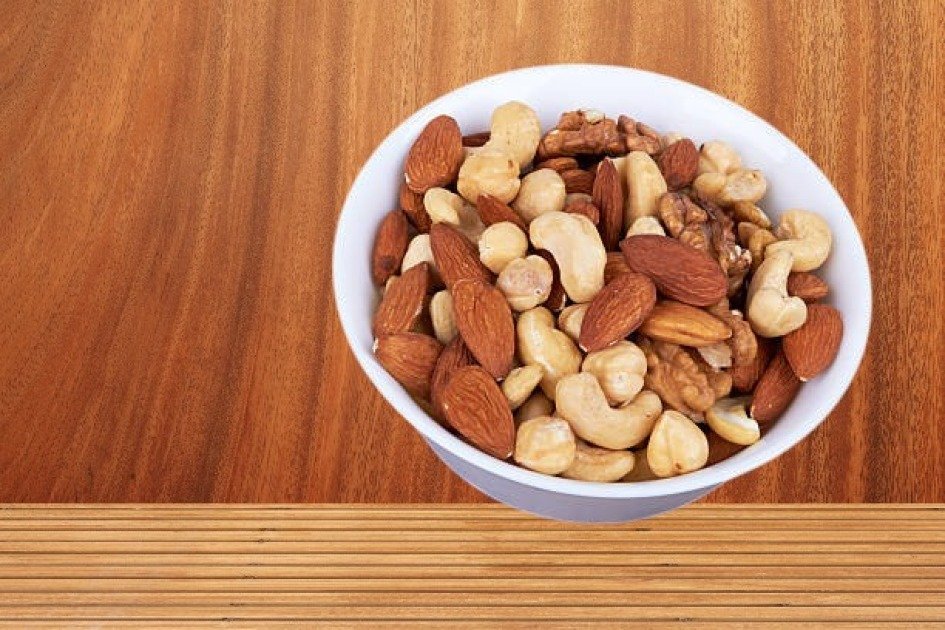
Nuts and Seeds: Tiny but Mighty
Intermittent fasting requires nutrient-dense foods like nuts and seeds, which provide essential macronutrients, micronutrients, and powerful antioxidants.
Nutritional Powerhouses
Nuts and seeds are rich in healthy fats, protein, and fiber, essential during intermittent fasting. Regular consumption of nuts can improve heart health and reduce inflammation due to their high omega-3 fatty acid content, particularly in almonds, walnuts, chia seeds, and flaxseeds.
Choose raw, unsalted chia seeds or almonds for optimal health benefits and avoid excess sodium.
Satiety and Energy Support
Intermittent fasting can help manage hunger by providing fiber and healthy fat content in nuts and seeds, like pistachios and sunflower seeds, which provide sustained energy for pre-fast meals.
Consuming Organic Pumpkin and Sesame Seed Blend in your diet can provide magnesium, support muscle function and reduce fatigue, especially beneficial for intermittent fasting exercise.
Antioxidants for Cellular Health
Intermittent fasting enhances cellular repair through autophagy, with antioxidants like Brazil nuts, rich in selenium, supporting thyroid function and combating oxidative stress.
Easy Integration into Meals
Adding nut butter and seeds to your diet is easy, as they can be added to yogurt, oatmeal, smoothies, or used as fruit dips.
Nuts and seeds are versatile and can be easily integrated into any diet plan, offering both nutritional benefits and culinary enjoyment.
Nutrient-dense foods like nuts and seeds can enhance your intermittent fasting journey by promoting satiety, providing energy, and supporting cellular health, but focus on quality and moderation.
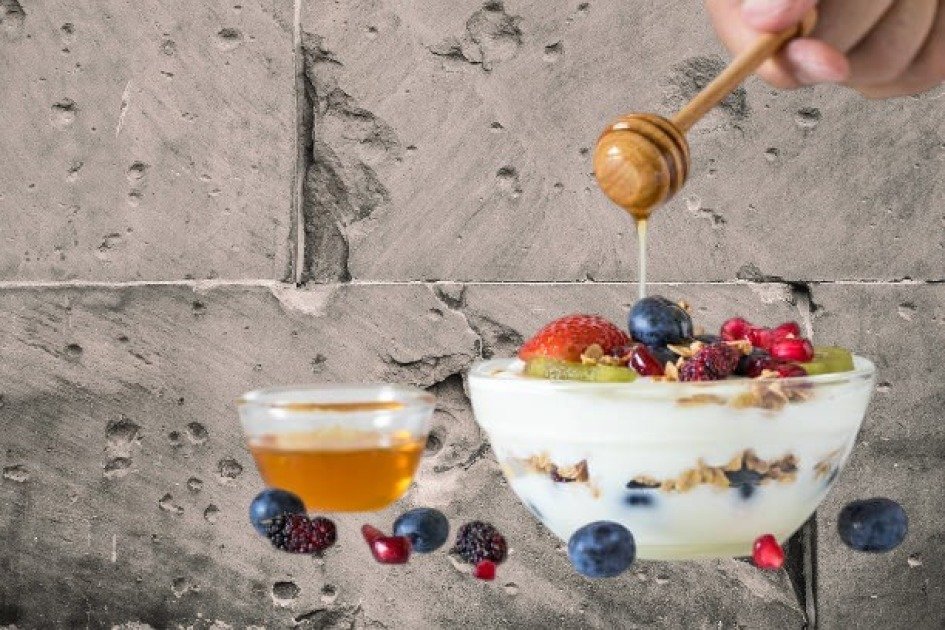
Greek Yogurt: Probiotic-Rich and Satisfying
Greek yogurt, a key part of a balanced diet, is an excellent choice during intermittent fasting due to its probiotic content, which enhances gut health and immunity.
Probiotic Powerhouse
Greek yogurt, rich in probiotics like Lactobacillus and Bifidobacterium, promotes a healthy gut microbiome, essential for reducing inflammation and improving nutrient absorption during intermittent fasting. High-quality, probiotic-rich Greek yogurts are recommended for gut health.
Protein for Satiety
Greek yogurt’s high protein content aids in feeling fuller for longer, especially during fasting. Casein and whey proteins contribute to sustained energy levels, maintaining muscle mass and supporting metabolism. A nutrient-packed brand can combat cravings and maintain focus during intermittent fasting.
Low Sugar Matters
Choose Greek yogurt with minimal added sugars for optimal health benefits, as excess sugar can hinder the metabolic benefits of intermittent fasting, especially for those maintaining stable blood sugar levels.
Versatility in Meals
Greek yogurt is a versatile ingredient that can be used in various intermittent fasting recipes, providing nutritional value and variety, making it an enjoyable addition to meals.
Greek Yogurt as a Breaking-Fast Food
Greek yogurt is an ideal strategy for breaking a fast due to its protein and probiotics, which aid digestion and nutrient absorption. Intermittent fasting practitioners recommend starting with easily digestible foods and pairing it with berries or honey enhances the fasting routine.
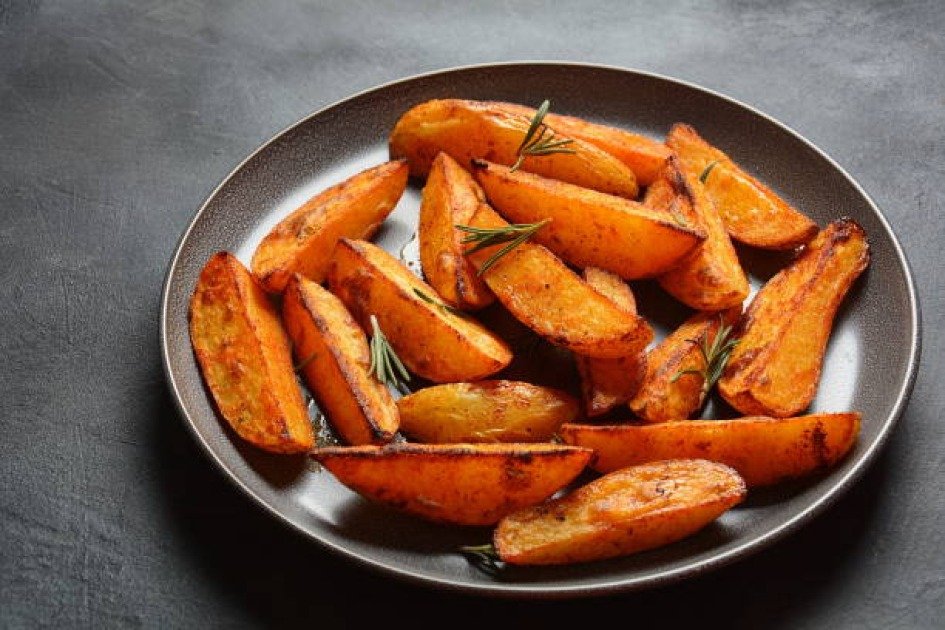
Sweet Potatoes: The Carbohydrate Hero
Sweet potatoes are a nutritious and essential part of an intermittent fasting meal plan due to their rich combination of carbohydrates, fiber, vitamins, and minerals, making them ideal for breaking fast.
Rich in Complex Carbohydrates
Sweet potatoes, rich in complex carbohydrates, are a beneficial food for transitioning into an eating window, as they help maintain stable blood sugar levels and prevent post-fast fatigue.
High Fiber Content
Sweet potatoes, rich in dietary fiber, aid digestion and prolong fullness, promoting gut health and satiety, making them a beneficial choice for intermittent fasting, preventing overeating.
Loaded with Vitamins and Antioxidants
Sweet potatoes are rich in vitamins A, C, and B, essential for immune function, skin health, and energy production. They also contain antioxidants to combat oxidative stress during fasting.
Versatility in Meal Preparation
Sweet potatoes offer culinary versatility, suitable for various meal plans. Roasted, mashed, or added to salads, they can be paired with lean protein sources like grilled chicken or quinoa for a balanced post-fast meal.
Glycemic Index and Fasting Compatibility
Sweet potatoes’ natural fiber content helps reduce blood sugar spikes and choosing orange or purple varieties enhances nutrient profile without compromising fasting benefits. Maintaining skin during preparation maximizes fiber and antioxidant intake.

Olive Oil: The Liquid Gold
Olive oil, known as liquid gold, is a rich, nutritious food with numerous health benefits. It is a key part of the Mediterranean diet and is essential for healthy eating patterns, especially for those practicing Intermittent Fasting. Olive oil is a premium source of monounsaturated fats, antioxidants, and essential nutrients, supporting both short- and long-term health.
Why Olive Oil is a Must-Have for Intermittent Fasting
Intermittent Fasting requires optimizing nutrient intake during limited eating windows. Olive oil, a heart-healthy monounsaturated fat, offers sustainable energy without triggering insulin spikes, making it an ideal fat for those following an Intermittent Fasting routine.
Olive oil, a minimally processed fat, is beneficial for maintaining a fasting state due to its ability to stabilize blood sugar levels and prevent cravings, unlike highly processed oils that can cause inflammation and disrupt metabolic function.
The Health Benefits of Olive Oil
Olive oil, a Mediterranean staple with centuries-old health benefits, is a powerful wellness tool. It improves heart health, brain function, skin, and longevity. Science continues to reveal its extraordinary properties, proving it is not just hype; it is a game-changer for health.
Olive oil can nourish the body, protect against disease, and elevate well-being, making it a valuable addition to any kitchen.
Olive Oil Benefits and Importance:
- Rich in Monounsaturated Fats: Olive oil’s primary fat, oleic acid, is a monounsaturated fatty acid that reduces inflammation, enhances fat metabolism, and supports cardiovascular health, making it beneficial for Intermittent Fasting and overall wellness.
- Loaded with Antioxidants: Olive oil, rich in antioxidants like vitamin E, polyphenols, and carotenoids, aids in combating oxidative stress and cellular damage, especially during fasting, supporting detoxification and protecting against free radical damage.
- Anti-inflammatory Properties: Olive oil’s anti-inflammatory compounds, like oleocanthal, can reduce inflammation-related diseases, promoting recovery and overall health during Intermittent Fasting, which is linked to various health conditions.
- Improves Brain Function: Olive oil’s antioxidants, particularly oleocanthal, have been linked to a lower risk of Alzheimer’s disease and cognitive decline, promoting brain health during fasting periods and ensuring mental clarity and focus are not compromised.
Olive Oil and Intermittent Fasting: A Perfect Match
Intermittent Fasting requires a balanced diet to support various health functions. Olive oil’s healthy fat profile helps maintain energy levels without spiking insulin or breaking fast, ensuring a healthy balance while eating windows.
Olive Oil Benefits:
- Sustains Energy Levels: Olive oil’s monounsaturated fats provide a long-lasting energy source, preventing mid-day energy slumps that may occur during fasting.
- Prevents Hunger Pangs: Olive oil’s fats, particularly those found in it, are satiating, ensuring prolonged fullness and prevent overeating during the eating window.
- Enhances Fat-Burning: Olive oil enhances fat oxidation, especially beneficial during fasting when the body switches to burning fat for fuel.
How to Use Olive Oil Effectively During Intermittent Fasting
The article suggests incorporating premium organic extra virgin olive oil into your Intermittent Fasting routine.
Creative ways to enjoy olive oil’s benefits:
- Salads and Dressings: Use extra virgin olive oil in salads or homemade dressings to enhance flavor and nutrition, adding a nutritious boost to your meal.
- Cooking and Sautéing: Olive oil is ideal for low-to-medium heat cooking to maintain its nutrients, but it also performs well in sautéing vegetables, stir-frying, and preparing grain bowls.
- Smoothies: Add a tablespoon of olive oil to your post-fast smoothies for an additional source of healthy fats, promoting energy and fullness.
- Dips and Spreads: Create a delicious dip by combining olive oil with herbs and spices for vegetables or whole grains.
- As a Topping: Drizzle olive oil over cooked vegetables or grilled fish for added nutritional value and richness.
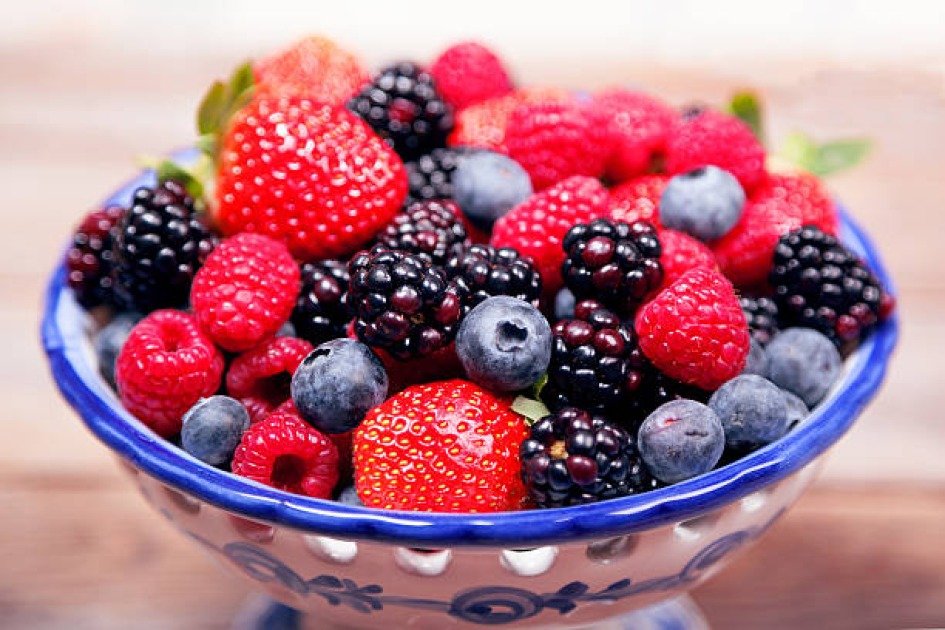
Berries: Sweet and Antioxidant-Rich
Berries are a nutritious food rich in antioxidants, fiber, vitamins, and minerals. Their natural sweetness, low calorie count, and health benefits make them an ideal addition to your intermittent fasting routine.
Antioxidant-Rich: Combating Oxidative Stress
Berries, including blueberries, strawberries, and raspberries, are rich in antioxidants, which help reduce oxidative stress, a factor that can be increased during fasting for cellular repair.
Berries are rich in antioxidants that neutralize free radicals, promote cellular health and reduce inflammation, making them excellent food for post-fast replenishment and protection.
Enjoy a Freeze-Dried Organic Berry Mix for a concentrated boost in antioxidant intake.
Low Glycemic Index: Stable Blood Sugar Levels
Berries, due to their low glycemic index, release glucose slowly into the bloodstream, ensuring stable blood sugar levels, making them an ideal post-fast snack.
Berries, low-glycemic fruits, are known to reduce insulin spikes, promoting metabolic stability, which is especially beneficial for those who practice intermittent fasting.
To achieve a balanced, low-sugar meal, consider adding Low-Glycemic Berry Powders to Greek yogurt or a smoothie during your eating window.
Rich in Fiber: Enhancing Digestive Health
Berries are a rich source of dietary fiber, particularly soluble fiber, which promotes gut health, regularity, and satiety, and can help manage hunger during fasting periods.
Berries are rich in fiber, which is essential for gut microbiome diversity and supports overall digestion by providing prebiotics that feed beneficial bacteria.
For a nutritious and fiber-dense snack, combine Fiber-Enriched Berry Granola Mixes with nuts and seeds.
Natural Sweetness: A Healthier Alternative to Sugar
Berries’ natural sweetness, combined with fiber and nutrients, can satisfy sugar cravings without disrupting intermittent fasting goals, unlike processed sugars.
Berries provide essential vitamins and antioxidants, making them a healthy and nutritious dessert option. Blend frozen berries with almond milk for a quick sorbet.
Vitamins and Minerals: Nutritional Powerhouses
Berries are rich in essential nutrients like vitamin C, manganese, and potassium, which are beneficial during intermittent fasting. Organic Vitamin-C-Rich Berry Supplements can help counter potential deficiencies.
Berries, rich in Vitamin C, strengthen the immune system, aid collagen production, and promote skin health. Consume a variety of fresh or frozen berries for a comprehensive nutritional intake.
Anti-Inflammatory Properties: Reducing Fasting-Related Stress
Berry Chia Mixes are a quick and nutritious recipe base due to their potent anti-inflammatory effects, which can help reduce systemic inflammation during fasting and feeding states.
Berries, known for their anti-inflammatory properties, can reduce the risk of chronic diseases like cardiovascular issues and diabetes when combined with chia seeds and almond milk.
Weight Management: Satisfying and Calorie Conscious
Berries, high in water and low in calories, are a satisfying addition to intermittent fasting diets due to their fiber and volume content.
Portioned Berry Snack Packs offer a healthy snack option for maintaining calorie goals, providing satiety without overeating, making them a wonderful way to enjoy a refreshing salad.
Brain-Boosting Benefits: Cognitive Support
Berries’ high flavonoids content may improve brain function, particularly during fasting, as the brain requires high-quality nutrients during eating periods.
Blend berries into a post-fast smoothie for a brain-boosting start, as Flavonoids in Cognitive-Boosting Berry Smoothie Mixes improve blood flow to the brain and protect against neurodegeneration.
Versatility in Meals: Endless Culinary Possibilities
Berries are versatile and can be used in various dishes and snacks, including smoothies, salads, desserts, and breakfast bowls.
The Ready-to-Use Berry Cooking Kits offer easy meal preparation options, allowing for experimentation with berry compotes, parfaits, and savory sauces for roasted meats.
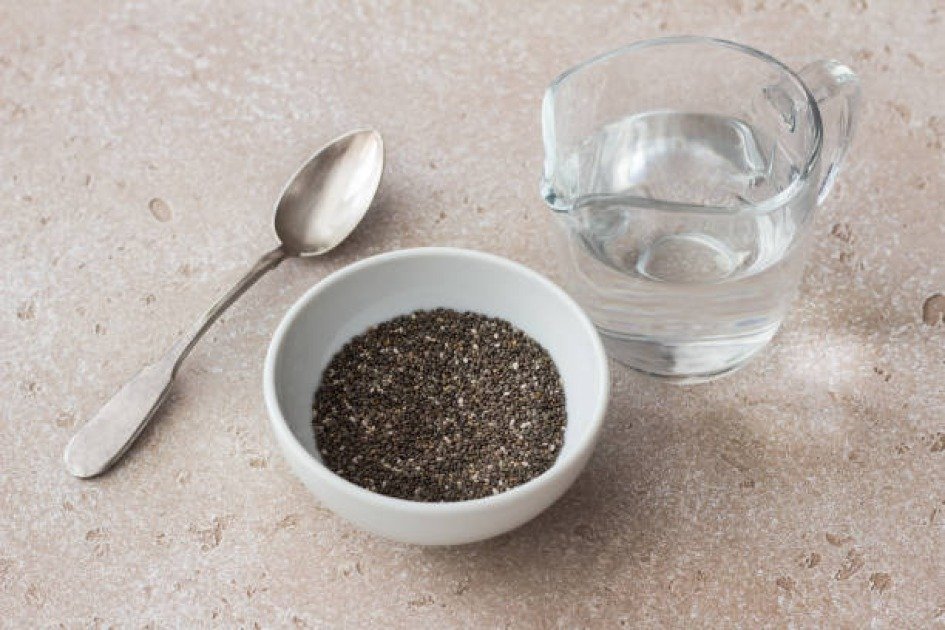
Chia Seeds: The Tiny Powerhouse
Chia seeds are a highly nutritious and nutrient-dense food that has been a staple in ancient diets for centuries, providing significant benefits to energy levels, digestion, and overall well-being.
Why Chia Seeds Are Essential for Intermittent Fasting
Chia seeds are a crucial part of a successful fasting regimen due to their ability to absorb up to ten times their weight in water, promoting prolonged satiety and hydration.
Chia seeds, rich in fiber, omega-3 fatty acids, antioxidants, and plant protein, are an excellent nutrient source for Intermittent Fasting due to their ability to slow digestion, stabilize blood sugar levels, and prevent energy crashes.
The Science Behind Chia Seeds’ Benefits
Chia seeds, once a staple of Aztec warriors, are a small yet powerful superfood rich in fiber, protein, and omega-3 fatty acids. They have been a source of energy and wellness for centuries and are now gaining popularity in modern health. Their benefits include boosting heart health, improving digestion, and supporting weight management.
- Sustained Energy & Hydration: Chia seeds’ soluble fiber forms a viscous gel, prolonging gastric emptying and reducing hunger, especially during Intermittent Fasting, ensuring stable energy levels without insulin spikes.
- Gut Health & Digestion: Chia seeds, with their ten grams of fiber, promote digestive health by promoting regularity and feeding gut bacteria, unlike other fiber sources that cause bloating.
- Rich Source of Omega-3s: Research indicates that omega-3 fatty acids, found in fish, can be obtained from plant-based sources like chia seeds, aiding in inflammation reduction, cognitive function, and fat metabolism.
Chia seeds, unlike flaxseeds, are bioavailable in their whole form, making them an easy superfood to incorporate into a fasting routine.
How to Incorporate Chia Seeds into Your Fasting Plan
To maximize benefits during Intermittent Fasting, consider strategic ways to consume chia seeds.
- Hydration Booster: Mix chia seeds with water or coconut water for a natural electrolyte drink.
- Fasting-Friendly Pudding: Chia seeds can be combined with almond milk and a natural sweetener to create a satisfying, low-carb, and high-fiber snack.
- Smoothie Enhancer: Add chia seeds to your post-fast smoothie for a nutritious, gut-friendly meal.
Soaking chia seeds before consumption enhances their digestibility and ensures optimal nutrient absorption.
Top Recommended Chia Seed Products
To enhance your fasting experience, opt for high-quality, organic chia seeds, including top-rated options such as:
- Organic Chia Seeds Non-GMO: This product is suitable for making smoothies, baking, and hydration drinks.
- HUMA CHIA Hydration Drink Mix: This product contains a combination of chia, electrolytes, and minerals to aid in fasting hydration.
- Terrasoul Superfoods Organic Flax Chia Blend: The product contains a blend of fiber-rich seeds that enhance digestion and omega-3 intake.
Chia seeds are a nutritious superfood that aids digestion, hydration, and energy, making them an ideal addition to Intermittent Fasting regimens.
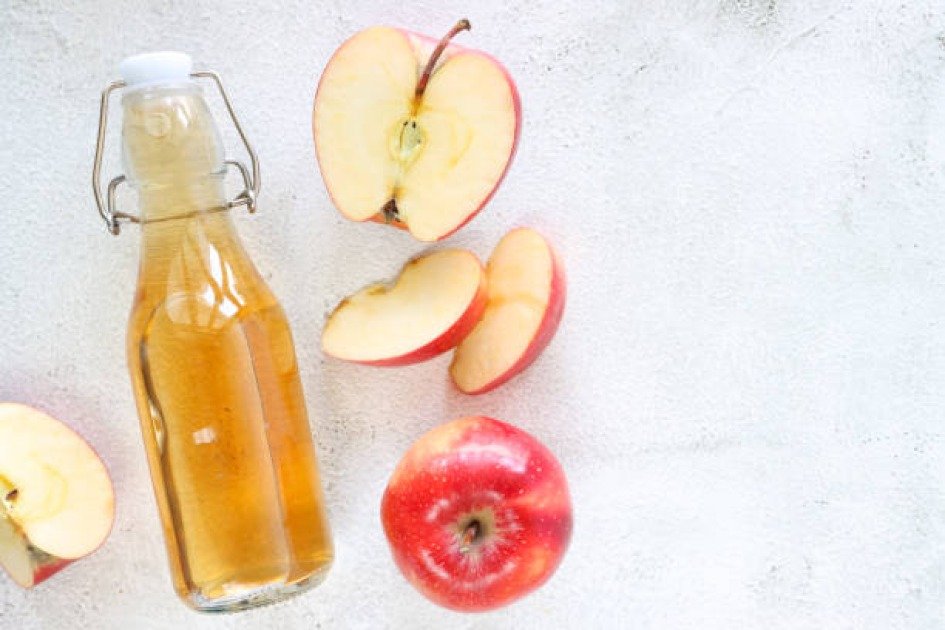
Apple Cider Vinegar: Your Metabolism’s Best Friend
Apple cider vinegar enhances metabolic function, supports digestion, and regulates blood sugar, making it an effective addition to an Intermittent Fasting regimen for efficient fat-burning.
Apple cider vinegar significantly enhances insulin sensitivity by stabilizing blood sugar levels, preventing crashes that often lead to hunger pangs and energy dips during fasting.
How Apple Cider Vinegar Optimizes Metabolism in Intermittent Fasting
Intermittent Fasting challenges individuals in maintaining stable energy levels as they transition from glucose to fat fuel sources, with apple cider vinegar playing a crucial role in this transition.
Apple Cider Vinegar’s Benefits for Fasting:
- Enhancing Fat Oxidation: ACV, a compound found in the Journal of Functional Foods, accelerates fat metabolism and reduces fat accumulation, enhancing the body’s ability to use fat for energy.
- Regulating Blood Sugar: ACV regulates insulin response, ensuring gradual glucose release into the bloodstream, preventing cravings and energy crashes that can hinder fasting periods.
- Supporting Digestion and Gut Health: Apple cider vinegar enhances digestion and nutrient absorption by stimulating digestive enzymes and supporting beneficial gut bacteria, making it an ideal addition to any fasting protocol.
Best Ways to Incorporate Apple Cider Vinegar During Fasting
Apple cider vinegar can be strategically consumed for optimal results, with several effective ways to incorporate it into your routine.
ACV Benefits for Fasting:
- Pre-Fast Metabolic Boost: Consuming a diluted tablespoon of ACV before fasting can aid in fat-burning and maintain stable blood sugar levels.
- Mid-Fast Hunger Suppression: A teaspoon of ACV in herbal tea or water can help manage hunger during fasting hours without breaking the fast.
- Post-Fast Digestion Support: ACV can be added to salad dressing or mixed with water to improve nutrient absorption and digestion during a fast.
Premium ACV Capsules is a convenient and effective alternative to liquid ACV, avoiding acidic taste and enamel erosion.
ACV as an Intermittent Fasting Powerhouse
Apple cider vinegar is a potent tool for enhancing fasting experiences, metabolic function, and overall health, if used correctly.
Fasting Benefits:
- Increased stability in energy levels during fasting periods.
- Reduced cravings and improved appetite control.
- Enhancing fat metabolism can improve weight management.
ACV Gummies offer a convenient and tasty alternative to traditional ACV products, eliminating the need for measurement and mixing.

Dark Chocolate: A Surprising Fasting Ally
Dark chocolate, especially those with 85% cocoa content or higher, can be a beneficial addition to Intermittent Fasting, providing energy, supporting metabolic health, and enhancing cognitive function.
Why Dark Chocolate Works During Intermittent Fasting
Dark chocolate, rich in polyphenols, antioxidants, and minimal insulin impact, is a healthier alternative to sugar-laden milk chocolate. Its healthy fats and fiber promote satiety without triggering a significant insulin response.
Dark chocolate, particularly flavonoids-rich ones, has been found to enhance endothelial function, reduce oxidative stress, and enhance cognitive clarity, making it beneficial for intermittent fasting practitioners.
Lily’s Extremely Dark Chocolate 85% is a keto and sugar-free option, while Alter Eco Super Blackout 90% is organic and fair trade. Hu Chocolate 85% is dairy-free and refined sugar-free. Dark chocolate contains theobromine, enhancing focus and endurance without caffeine jitteriness.
The Science Behind Dark Chocolate and Fat Metabolism
Dark chocolate, rich in cacao polyphenols, can enhance mitochondrial function, enhancing fat utilization for energy production. This metabolic shift is beneficial for those aiming to maximize fat loss during fasting windows, according to the National Institute of Health.
Dark chocolate, unlike low-calorie fasting foods, is nutrient-rich and calorically dense, aligning with fasting principles. It moderates hunger hormone ghrelin, providing sustained energy levels.
How to Incorporate Dark Chocolate Without Breaking a Fast
Dark chocolate offers numerous benefits, but proper consumption timing is crucial for maximum effects. To maximize its benefits, follow these best practices:
- Eat it during your eating window: Post-meal, consume 1-2 small squares to decrease sugar cravings and enhance satiety.
- Pair it with healthy fats: Combine almond butter or walnuts to slow digestion and enhance nutrient absorption.
- Select chocolates with minimal added sugar: Choose brands that use stevia, monk fruit, or coconut sugar as sweeteners.
Dark chocolate can help individuals with sugar withdrawal during fasting prevent binge-eating episodes while supporting metabolic goals by incorporating a small amount into their eating window.
Dark chocolate, rich in antioxidants, hunger-control, and cognitive-enhancing compounds, can be a beneficial addition to Intermittent Fasting regimens, supporting fat metabolism and overall health through strategic consumption.

Green Tea: A Natural Fat Burner
Green tea is a powerful beverage that enhances the benefits of Intermittent Fasting by providing antioxidants, metabolism-boosting compounds, and polyphenols, which support weight management and overall well-being, and enhance fat oxidation.
Why Green Tea Works So Well with Intermittent Fasting
Green tea, rich in EGCG, enhances thermogenesis and fat metabolism without causing jitters, while its caffeine content works synergistically with EGCG.
Green tea’s catechins have been proven to enhance fat oxidation, making it especially effective during fasting periods when the body enters a fat-burning state.
Consume 2-3 cups of high-quality green tea daily during fasting windows for maximum benefits in fat loss and cellular repair.
The Unique Metabolic Effects of Green Tea
Green tea offers a jitter-free energy boost, improving mental clarity and focus, making it an ideal supplement for Intermittent Fasting, thereby curbing hunger and maintaining cognitive function.
Green tea extract, rich in high potency, can boost fat oxidation by up to 17% during moderate exercise, making it an ideal addition to a fasting routine.
How to Choose the Best Green Tea for Fasting
Choose organic, minimally processed green tea for optimal fat-burning and antioxidant benefits, as not all green teas are created equal.
- Matcha Green Tea: The product contains the highest concentration of EGCG and L-theanine, which improves relaxation and focus.
- Eden Organic Sencha Green Tea: Japanese green teas are renowned for their exceptional antioxidant properties.
- Loose-Leaf Over Tea Bags: Loose leaves are found to retain more polyphenols than processed tea bags.
To enhance nutrient absorption and satiety, pair green tea with healthy fat sources like MCT oil or collagen supplement. Explore organic matcha powder for sustained energy and fat burning.
Common Concerns About Green Tea & Fasting
Green tea may cause stomach sensitivity due to tannin content, so cold-brewed options are recommended for those concerned, offering lower tannin levels and a smoother taste.
Cold-brewing green tea for 8 hours reduces bitterness and preserves polyphenol content, making it gentler on the stomach and maintaining metabolic benefits. Consume with nuts or avocado for stomach discomfort.
Why Green Tea Should Be a Staple in Your Fasting Routine
Green tea, rich in antioxidants, is a beneficial addition to any Intermittent Fasting regimen due to its scientifically supported benefits and ability to boost metabolism and promote overall health.
Choose high-quality organic green tea and experiment with different brewing methods to find the best fit for your fasting goals. Enhance your fasting experience with Nature’s Bounty Green Tea supplements.
Final Thoughts
Fasting offers a chance to reset and reclaim health. Eating nutrient-dense, fasting-friendly superfoods like leafy greens, fermented foods, omega-3-rich seeds, and clean proteins can enhance detoxification, energy balance, fat-burning, and cellular repair, promoting mental clarity, metabolic health, and longevity.
How to Combine These Foods for Maximum Impact
Intermittent Fasting and nutrient-dense foods can enhance metabolic efficiency, energy levels, and overall well-being when combined strategically, while maintaining a balanced macronutrient profile.
Prioritizing Nutrient Timing for Optimal Absorption
The timing of food consumption is crucial for maintaining energy levels during fasting and feeding windows. During fasting, the body uses fat for fuel, so focusing on easily digestible, nutrient-rich foods is essential.
Transitioning from fasting to feeding requires consuming foods rich in electrolytes, fiber, and healthy fats to stabilize blood sugar levels and optimize digestion.
Optimal Strategy:
- Pre-fasting meals should include healthy fats, moderate protein, and fiber to enhance satiety, such as avocado with wild-caught salmon and steamed leafy greens.
- Breaking the fast involves replenishing minerals and promoting gut health with easily digestible nutrients like bone broth with chia seeds or apple cider vinegar diluted in water.
- Post-fasting meals should include protein, healthy fats, and antioxidants to aid muscle recovery and metabolic function, such as cooked eggs in MCT oil with dark chocolate and nuts.
Combining Superfoods for Maximum Metabolic Boost
Superfoods have distinct functions, but their benefits are enhanced when combined strategically.
- Fat-Burning Power Pair: Apple cider vinegar + Green tea
- This combination enhances fat oxidation and stabilizes blood sugar.
- Consume 1 tbsp of ACV in warm water 30 minutes before your first meal, followed by a cup of matcha green tea for sustained energy.
- Brain-Boosting Meal: Wild-caught salmon + Dark chocolate
- Salmon’s omega-3 fatty acids enhance cognitive function, while dark chocolate’s polyphenols promote brain health.
- A lunch featuring grilled salmon and a small serving of 85%+ dark chocolate as a dessert.
- Gut-Healing Formula: Bone broth + Chia seeds
- Bone broth contains amino acids that repair gut lining, while chia seeds offer prebiotic fiber for digestion.
- Add one tablespoon of chia seeds to warm bone broth for a gut-nourishing beverage.
Enhancing Nutrient Absorption with Smart Pairings
Combining certain nutrients effectively enhances their bioavailability, thereby enhancing fasting results and maximizing nutrient bioavailability.
- Fat-Soluble Vitamins (A, D, E, K) + Healthy Fats
- Leafy greens are rich in vitamins A and K, but they require fat for absorption.
- A spinach salad, topped with olive oil and avocado, is a nutritious and delicious way to improve vitamin absorption.
- Protein + Omega-3s for Muscle Maintenance
- Eggs and wild-caught salmon are a potent combination that can effectively maintain lean muscle during fasting.
- Scrambled eggs paired with smoked salmon is a nutritious and high-protein meal that supports muscle growth.
- Eggs and wild-caught salmon are a potent combination that can effectively maintain lean muscle during fasting.
- Polyphenols + Antioxidants for Longevity
- Dark chocolate and green tea are rich in polyphenols, which help reduce oxidative stress and promote cellular health.
- Matcha green tea and a piece of 90% dark chocolate are recommended as an afternoon energizer.
Addressing Potential Concerns About Food Combinations
Superfoods can enhance Intermittent Fasting’s effectiveness by stabilizing blood sugar, optimizing digestion, and boosting metabolic flexibility. However, misconceptions about these foods can hinder their full potential. This article provides science-backed solutions.
Eating Avocados Will Break My Fast and Stop Fat Burning
Research suggests avocados, rich in healthy monounsaturated fatty acids (MUFAs), enhance ketosis, provide a slow-burning energy source, reducing hunger, and sustaining metabolic efficiency during Intermittent Fasting, contrary to trendy belief.
Avocados’ monounsaturated fats regulate insulin sensitivity and maintain energy levels, making them ideal for fasting. A small serving eases digestion, and organic avocado oil can be used for fasting.
Eggs Spike Insulin and Disrupt Ketosis
Misconception: eggs can trigger insulin spikes, reducing Intermittent Fasting benefits. However, they contain high-quality protein, choline, and essential amino acids for muscle maintenance and brain function.
PL-100 Egg Protein Powder is a great post-fast meal, combining eggs with healthy fats like olive oil for enhanced nutrient absorption and ketosis support.
Leafy Greens Are Hard to Digest After Fasting
Leafy greens may cause bloating after extended Intermittent Fasting due to their high fiber content, which can be challenging for those with a sensitive digestive system.
Organic Greens Powder for Smoothies can reduce fiber density while maintaining essential nutrients, making them gentler on digestion after fasting. Start with steamed spinach or chia seed-blended green smoothie.
Bone Broth During a Fast Prevents Autophagy
Bone broth, rich in collagen and amino acids, may not interfere with autophagy, a crucial cellular repair process during Intermittent Fasting, despite its potential benefits.
Grass-fed bone broth protein powder supports gut healing, joint health, and autophagy. Consume during fasting windows to replenish electrolytes and maintain gut health.
Salmon Contains Too Much Fat for a Post-Fast Meal
Wild-caught salmon, rich in omega-3 fatty acids, is a beneficial post-fast meal due to its ability to lower inflammation and support brain function.
Wild-caught salmon oil softgel contain omega-3s, which regulate inflammation, enhance cognitive function, and support heart health. Pair salmon with fiber-rich vegetables for optimal nutrient absorption.
Nuts & Seeds Are Too Caloric for Fasting Diets
Nuts and seeds, despite their high calorie content, are rich in healthy fats, fiber, and protein, which can enhance satiety and metabolic function during Intermittent Fasting.
Organic Chia Seeds are a healthy alternative to nuts and seeds, providing energy balance and preventing binge eating after fasting, with a small serving size.
Greek Yogurt Spikes Blood Sugar
Greek yogurt, high in protein and probiotics, may raise insulin levels post-fast, but its low glycemic index makes it an ideal fast breaker.
Greek Yogurt Starter Culture is a full-fat, slow-digesting protein source that supports gut health and stabilizes blood sugar after fasting when paired with berries and nuts.
Sweet Potatoes Contain Too Many Carbs and Disrupt Fasting
Sweet potatoes, often misunderstood in Intermittent Fasting, are a potent slow-digesting carb that aids post-fast recovery without causing blood sugar spikes when consumed strategically.
Sweet potatoes are a nutritious source of resistant starch, supporting gut health and energy levels. They can be paired with healthy fats like Premium Extra Virgin Olive Oil to slow down carbohydrate absorption and minimize insulin fluctuations.
Olive Oil Loses Its Health Benefits When Heated
Heating olive oil may cause degradation of polyphenols and monounsaturated fats, but it remains stable at moderate cooking temperatures, despite some potential changes.
Cold-pressed Extra Virgin Olive Oil is a superior fat source for cooking and fasting due to its up to 80% antioxidant content even when lightly heated. It is ideal for low-heat cooking and salads, especially with dark leafy greens.
Berries Are Too High in Natural Sugars for Intermittent Fasting
Berries, despite their natural sugar content, are low glycemic and rich in fiber, antioxidants, and polyphenols, which aid in cellular repair and metabolic balance.
Berries, rich in anthocyanins and fiber, are ideal for breaking fasts due to their ability to regulate blood sugar and reduce oxidative stress. Pairing berries with healthy fats and protein can prevent rapid glucose absorption and maintain energy levels.
Chia Seeds Can Cause Digestive Discomfort
Chia seeds, with their high fiber content, can slow digestion and stabilize blood sugar, but excessive consumption may cause bloating and digestive distress.
Organic chia seeds are beneficial for gut health as they absorb up to ten times their weight in water, requiring hydration to prevent digestive discomfort. Soak them in liquid for 30 minutes before consumption. The ideal meal includes chia pudding with almond milk, cinnamon, and dark chocolate.
Apple Cider Vinegar (ACV) Damages Tooth Enamel
Apple cider vinegar, known for its gut health and blood sugar regulation benefits in Intermittent Fasting, can potentially erode tooth enamel if consumed improperly.
Organic Apple Cider Vinegar with the mother is a natural remedy that can be used to reduce acidity and maintain its metabolic benefits by diluting it in water and not brushing teeth immediately after consumption.
Dark Chocolate Contains Too Much Sugar for Fasting
High-quality dark chocolate (85%+ cacao) is low in sugar and rich in antioxidants, magnesium, and polyphenols, which improve brain function and reduce inflammation.
“Dark chocolate, rich in cacao flavonoids, is beneficial for cognitive performance and cardiovascular health. Pair it with nuts or berries for additional nutrients. The optimal snack is 1 oz of 90% organic dark chocolate with almonds.
Green Tea on an Empty Stomach Causes Stomach Irritation
Green tea, a potent metabolic booster, may cause nausea or stomach irritation when consumed on an empty stomach due to its tannins.
Organic Matcha Green Tea Powder, rich in catechins, enhances fat oxidation but may cause gastric discomfort. Consume it after breaking fast or with a light snack, ideally with a handful of nuts.
Final Thoughts
Food pairings optimize nutrient absorption, metabolic efficiency, and fasting results. Superfoods play unique roles in Intermittent Fasting, enhancing longevity, energy, and overall health when consumed strategically.
Common Mistakes to Avoid During Intermittent Fasting
Intermittent Fasting offers numerous health benefits, but common mistakes can lead to fatigue, muscle loss, and cognitive impairment. Understanding these pitfalls is crucial for long-term success in a healthy lifestyle.
Overeating Processed Foods During Eating Windows
Intermittent Fasting may not replace poor diet, as excessive consumption of refined sugars and unhealthy fats can lead to insulin resistance, chronic inflammation, and metabolic disorders.
Fasting does not eliminate processed foods’ negative effects. Instead, prioritize whole, nutrient-dense foods like avocados, lean proteins, nuts, and fermented foods. Incorporate Electrolyte Supplements and MCT Oil for enhanced metabolic function.
Neglecting Hydration and Electrolyte Balance
Water is vital for digestion, cognitive function, and cellular processes, but dehydration and electrolyte imbalances are common due to fasting, which eliminates food-based sources of hydration.
The Journal of Nutrition found that even mild dehydration can affect cognitive performance and mood, suggesting drinking at least half your body weight in water daily and supplementing Electrolyte Powders.
Breaking the Fast with High-Sugar or High-Carb Meals
Breaking fast efficiently is crucial for nutrient absorption, as sudden influx of refined carbohydrates or sugary foods can cause energy crashes and increased fat storage.
Harvard Medical School’s study suggests that individuals who break their fast with a balanced diet of proteins, healthy fats, and fiber experience stable blood sugar levels and prolonged satiety, while Collagen Peptides support gut health and muscle recovery post-fast.
Ignoring Protein Intake, Leading to Muscle Loss
Fasting enthusiasts often neglect protein intake, leading to increased muscle catabolism, weakening metabolism, and reduced overall strength over time.
Intermittent fasting should not cause muscle depletion, so aim for 1.2-2.0 grams of protein per kilogram of body weight, with protein powders for muscle retention, and prioritize high-quality sources.
Not Listening to Your Body’s Signals
Ignoring hunger cues, dizziness, or fatigue may indicate a need for adjustment in fasting approach, while excessive weakness or irritability indicate an imbalance.
Long fasting durations can cause hormonal imbalances, especially in women. A flexible fasting schedule is more beneficial. Adjust fasting windows based on metabolic flexibility and hormonal balance. Smart Health Monitors offer real-time insights.
Final Thoughts
Avoiding common mistakes and incorporating a well-balanced fasting regimen, hydration, whole foods, and strategic supplementation can maximize intermittent fasting benefits, maintain metabolic efficiency, and achieve sustainable long-term success.
Top Products to Enhance Your Fasting Success
Intermittent Fasting requires discipline and strategic supplementation to maximize benefits. Top-rated products can bridge nutritional gaps, maintain hydration, and support metabolic efficiency.
Electrolyte Supplements: Prevent Dehydration and Fatigue
Intermittent Fasting, a fasting method, can lead to decreased insulin levels, increased sodium and water excretion, potentially causing dizziness, headaches, and muscle cramps.
Fasting-related fatigue is often caused by electrolyte imbalances, not calorie deficiency. Replenishing sodium, potassium, and magnesium can prevent symptoms. Use Hydration Electrolyte Powder for sugar-free, unsweetened electrolyte supplements.
MCT Oil: Supercharge Fat Burning and Mental Clarity
MCT oil, a fast-absorbing fat source, enhances ketone production, improves cognitive function, increases satiety, and accelerates fat burning when combined with intermittent fasting.
MCTs, unlike traditional fats, are converted into ketones quickly, providing an immediate energy boost. For superior ketosis support, add 1-2 teaspoons of organic MCT oil to your morning coffee or green tea.
Collagen Peptides: Strengthen Gut Health and Skin Elasticity
Intermittent Fasting aids cellular repair, but lack of protein intake can lead to muscle loss and skin elasticity decline, while collagen peptides support gut lining integrity and joint health.
Collagen is essential for maintaining gut barrier function, especially during fasting periods. Grass-Fed Collagen Peptides, a hydrolyzed collagen powder, can be mixed with bone broth for gut-healing benefits.
Apple Cider Vinegar Gummies: Balance Blood Sugar and Curb Cravings
Apple Cider Vinegar (ACV) is a popular intermittent fasting supplement, providing blood sugar stabilization, digestion enhancement, and craving reduction, but its strong taste can be unpleasant.
Organic Apple Cider Vinegar Gummies are a non-acidic, gentle alternative to traditional ACV, designed to aid digestion and insulin response before meals.
High-Quality Green Tea Extract: Enhance Fat Oxidation
Green tea, rich in catechins and EGCG, boosts metabolism, supports cognitive function, and aids in energy retention when combined with Intermittent Fasting.
Matcha Green Tea Extract, a high-potency antioxidant supplement, can optimize mitochondrial function and fat metabolism during fasting hours, providing additional fat-burning benefits.
Fasting Support Multivitamin: Fill Nutrient Gaps
Intermittent fasting offers health benefits, but prolonged periods can cause micronutrient deficiencies. A fasting-friendly multivitamin ensures optimal vitamins and minerals without disrupting the fasting process.
The Fasting Refeed Multivitamin is a specialized supplement designed for fasting individuals, containing bioavailable nutrients and liposomal or chelated minerals for maximum absorption.
Smart Fasting Tracker: Monitor Your Progress
Wearable fasting trackers offer real-time feedback on glucose levels, ketone production, and overall metabolic health, enhancing long-term success in maintaining a healthy lifestyle.
Advanced trackers now incorporate AI to personalize fasting schedules, providing real-time metabolic insights and monitoring biomarkers for optimal results.
Final Thoughts
High-quality supplements and smart fasting tools can significantly improve intermittent fasting experience by addressing hydration, metabolic efficiency, and nutrient intake, ensuring optimal fasting results and sustainable fasting.
Recap: The Secret to Making Intermittent Fasting Work for You
Intermittent Fasting is a strategic approach to health, metabolism, and longevity, requiring quality food, hydration, and metabolic adaptability. It is achieved through nutrient-dense options, macronutrient balance, and scientifically backed fasting enhancers.
Nutrient timing is crucial for successful Intermittent Fasting, as it enhances the body’s efficient utilization of nutrients. Post-fasting, replenishing with high-quality proteins, healthy fats, and essential micronutrients is essential. Consuming omega-3 fatty acids, electrolytes, and antioxidants can accelerate recovery and enhance metabolic efficiency, with Electrolyte Supplements and High-Quality MCT Oil being essential.
Fasting fatigue often stems from lack of food, but dehydration is the main cause. A 1-2% drop in hydration can impair cognitive function and physical performance. Collagen Peptides and Hydration Boosters support gut health and mineral intake, while maintaining electrolyte balance is crucial to avoid negative side effects.
Intermittent Fasting is beneficial for fat oxidation, especially when combined with polyphenol-rich beverages like green tea and apple cider vinegar. Green tea extract enhances thermogenesis, allowing efficient fat burning while fasting windows. Apple cider vinegar regulates blood sugar levels and curbs cravings, enabling longer fasting windows without energy crashes.
Intermittent Fasting is effective but breaking it with high-glycemic foods can trigger insulin spikes. A more strategic approach is to consume protein-rich whole foods like pasture-raised eggs, wild-caught salmon, and avocado. This combination maintains satiety, stabilizes blood sugar levels, and enhances muscle retention and metabolic efficiency post-fasting.
Adopting a flexible fasting approach, such as alternate day fasting or the 16:8 method, is crucial for long-term adherence. Dr. Andrew Foster suggests aligning fasting protocols with personal lifestyle and energy demands. Integrating Fasting Supplements and Metabolism Boosting Superfoods can simplify the process and support sustainable results.
In summary, intermittent fasting is a metabolic reset that enhances longevity, cognitive function, and overall health. It involves prioritizing nutrient-dense foods, staying hydrated, and using scientifically supported fasting enhancers. Strategic nourishment, hydration, and consistency ensure sustainable health benefits.
Frequently Asked Questions
How does Intermittent Fasting affect my metabolism?
Intermittent fasting boosts metabolism by increasing norepinephrine production and reducing insulin levels, while nutrient-dense foods like olive oil and avocados enhance metabolic health during fasting windows.
Intermittent fasting, when done correctly, does not slow down metabolism, but short-term fasting boosts fat-burning, while prolonged fasting increases metabolic rate due to adrenaline and growth hormone.
To optimize fat loss and muscle preservation, supplement BCAAs or collagen peptides during fasting periods. Incorporate supercharge food while eating windows for fuel and maintain a balance by eating the right foods at the right times.
What food should I avoid while practicing Intermittent Fasting?
Intermittent Fasting offers flexibility but can disrupt benefits. Minimize processed, refined sugary, and unhealthy fats, avoid sugary snacks, refined carbohydrates, and fast-food while eating windows.
Focus on whole, nutrient-dense foods like lean proteins, healthy fats from olive oil and nuts, and fibrous vegetables to support goals and promote sustained energy.
Can I drink olive oil during my fasting period?
Olive oil, rich in monounsaturated fats and antioxidants, is a beneficial food choice during fasting windows due to its ability to reduce inflammation, support heart health, and promote satiety.
To boost energy during your fasting window, add a small amount of premium olive oil to your morning coffee or tea, but ensure it is part of your overall Intermittent Fasting strategy.
How can I manage hunger during Intermittent Fasting?
Hunger during Intermittent Fasting can be managed effectively by consuming high-fiber, nutrient-dense foods like berries, leafy greens, and avocados while eating windows, which help maintain fullness and stabilize blood sugar levels.
Drinking plenty of water and herbal teas throughout the day can help alleviate hunger and support the body’s natural detoxification processes.
What is the Best Way to Break a Fast Without Spiking Blood Sugar?
Breaking a fast is crucial in Intermittent Fasting, so start with a light, balanced meal rich in protein, healthy fats, and fiber to ease the digestive system.
Maximize Intermittent Fasting benefits by consuming nutrient-dense foods like eggs, leafy greens, and olive oil, avoiding overeating during fast breaks, and starting with easily digestible, healthy fats, electrolytes, and lean protein.
Best Foods to Break Fast:
- Bone broth: Rich in collagen and electrolytes, it soothes the gut.
- Avocado: Provides healthy monounsaturated fats to stabilize blood sugar.
- Pasture-raised eggs: A major source of bioavailable protein and choline.
- Greek yogurt: Contains probiotics that aid digestion.
Apple cider vinegar, when diluted in water 30 minutes before a meal, can improve insulin sensitivity and reduce blood sugar spikes, while gummies provide similar benefits without the harsh taste.
Is there a specific type of olive oil best suited for Intermittent Fasting?
Extra virgin olive oil, a cold-pressed, minimally processed oil, is the optimal choice for Intermittent Fasting due to its high concentration of antioxidants and polyphenols, which protect the body from oxidative stress.
Extra virgin olive oil, considered the gold standard due to its high nutritional value and minimal processing, provides the full spectrum of nutrients for your Intermittent Fasting routine.
Can I combine Intermittent Fasting with a ketogenic diet?
Intermittent Fasting and ketogenic diets are often combined to enhance fat-burning and metabolic flexibility, utilizing fat as primary energy and high-fat foods for satiety.
Starting Intermittent Fasting and a ketogenic diet simultaneously is advised to be gradual and listen to your body. Some may prefer starting with Intermittent Fasting alone before incorporating the ketogenic diet.
Can I Drink Coffee While Fasting?
Black coffee can be consumed during Intermittent Fasting due to its zero calories content and potential to enhance fat oxidation, as caffeine stimulates metabolism and supports ketone production.
Avoid sugar, creamers, and artificial sweeteners to prevent insulin response and enjoy an enhanced fasting experience with organic coffee blends enriched with MCT oil.
Is Intermittent Fasting Safe for Women?
Intermittent fasting benefits both genders, but prolonged fasting may disrupt female hormone balance, leading to irregular menstrual cycles, thyroid suppression, or increased cortisol levels.
Best Fasting Protocols for Women:
- 14:10 Method: Fast for 14 hours, eat within a 10-hour window.
- Crescendo Fasting: Fast 2–3 times per week instead of daily.
- Modified Fasting: Consume electrolyte-infused bone broth or collagen protein during fasting to support adrenal function.
Women should adjust fasting schedules to suit their hormonal needs, incorporating shorter fasts and nutrient-dense meals, and seeking a functional medicine consultation can personalize their fasting strategy.
Can I Exercise While Fasting?
Intermittent Fasting exercise can improve fat oxidation and increase human growth hormone (HGH) production.
Best Workouts While Fasting:
- Low-intensity cardio (e.g., brisk walking, cycling) for enhanced fat burning.
- Strength training is recommended to maintain lean muscle mass and prevent muscle breakdown when combined with BCAA supplements.
- Yoga & Pilates to reduce cortisol and improve flexibility.
Fasted exercise boosts glycogen levels by up to 2000%, aiding muscle retention and fat loss. To prevent dehydration and electrolyte imbalances, consume electrolyte supplements before workouts.
What Liquids Can I Drink During Fasting?
To maintain a true fast state, opt for beverages that are low in calories and do not trigger an insulin response.
Fasting-Friendly Drinks:
- Water: Plain, mineral, or sparkling.
- Black coffee: Enhances metabolism and suppresses appetite.
- Green tea: Contains catechins that aid fat oxidation.
- Apple cider vinegar (diluted in water): Supports digestion and insulin sensitivity.
- Electrolyte-infused water: Helps prevent dehydration.
Drinks to Avoid:
- Fruit juices: Even natural juices spike insulin levels.
- Diet sodas: Artificial sweeteners may trigger cravings.
- Bulletproof coffee: Ketogenic fasting, although technically permissible, can disrupt a strict fast due to the inclusion of added fats.
Fasting-approved electrolyte supplements are recommended for sustained energy and hydration.
How Long Should I Fast for Optimal Results?
The duration of fasting should be determined by your objectives, metabolic flexibility, and overall health.
Recommended Fasting Durations:
- 12:12 (Beginner-Friendly): Great for metabolic adaptation.
- 16:8 (Most Popular): Enhances weight loss and insulin sensitivity.
- 18:6 (Advanced): Maximizes autophagy and fat oxidation.
- 24-Hour Fasts (1–2 times per week): Supports deep cellular repair.
- 36+ Hour Fasts (For Experienced Individuals): Should be supervised due to potential electrolyte depletion.
Consistency is key in fasting, even shorter ones, providing significant health benefits. Nutritionist consultations can customize fasting lengths based on health goals.

